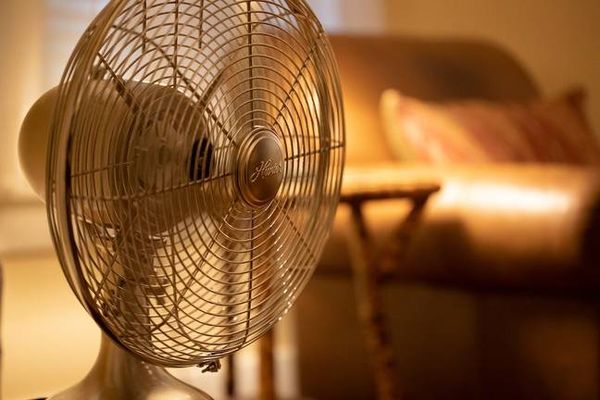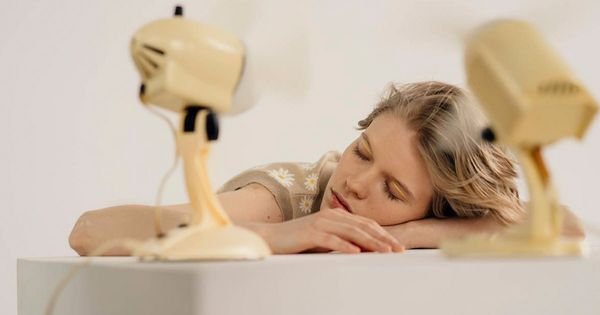Heatwaves have been sweeping across the globe, leaving many of us hot, sweaty, and uncomfortable. While air-conditioning may not be a luxury we all have, a fan seems like the next best option. However, recent studies have shown that sleeping with a fan on might not be the most hygienic choice. Although it can provide a cool breeze for a comfortable sleep, it’s important to consider the potential drawbacks.

Sleeping with the Fan On vs. Off
If you’ve ever tried sleeping with the fan on full blast, you may have experienced waking up with a stuffy nose. The constant breeze from the fan can contribute to blocked nasal cavities and sinus irritation. The dry air circulated by the fan can cause dryness and irritation in the nose, mouth, and throat.
According to Sleep Advisor, the constant stream of air from a fan can dry out your nasal passages, leading to blockage, stuffiness, and sinus headaches. This can be particularly bothersome for individuals who suffer from hay fever or allergies, as the fan can blow around pollen in the room.

It Can Make Your Body Stiff
In addition to its effects on the sinuses and throat, sleeping with a fan can also lead to stiffness in the body’s muscles. The concentrated cool air from the fan can cause muscles to tense up and cramp, resulting in stiffness and soreness upon waking up. This problem is especially common for those who position the fan near their face and neck. If you frequently wake up with a stiff neck, it might be due to the constant breeze from the fan.
Benefits of Using a Fan
Despite the potential drawbacks, there are still benefits to using a fan while sleeping. Healthline suggests that sleeping with a fan can cool you down significantly, which is especially beneficial during hot weather. This can be particularly important for babies as it can help reduce the risk of Sudden Infant Death Syndrome (SIDS). Some studies have shown that fan use during sleep was associated with a 72 percent reduction in SIDS risk.
Additionally, many people appreciate the white noise produced by a fan. Research has shown that exposure to white noise, such as the sound of a fan, can help individuals fall asleep faster. It can also improve sleep quality for those who struggle with environmental noise disturbances.
Finding a Balance
If you can’t sleep without a fan but want to minimize the potential side effects, there are some things you can do. Keep the fan on a low setting and position it several feet away from you. Also, consider having it face in a different direction to avoid direct airflow on your face and neck.
Adding a humidifier to your room can also help balance the dryness caused by the fan, providing some moisture to prevent excessive drying of the sinuses.
Ultimately, the choice of whether to sleep with a fan is personal. If you find that it works well for you with minimal or no side effects, go ahead and use it. Fans can be effective and affordable solutions for keeping cool during the night.





